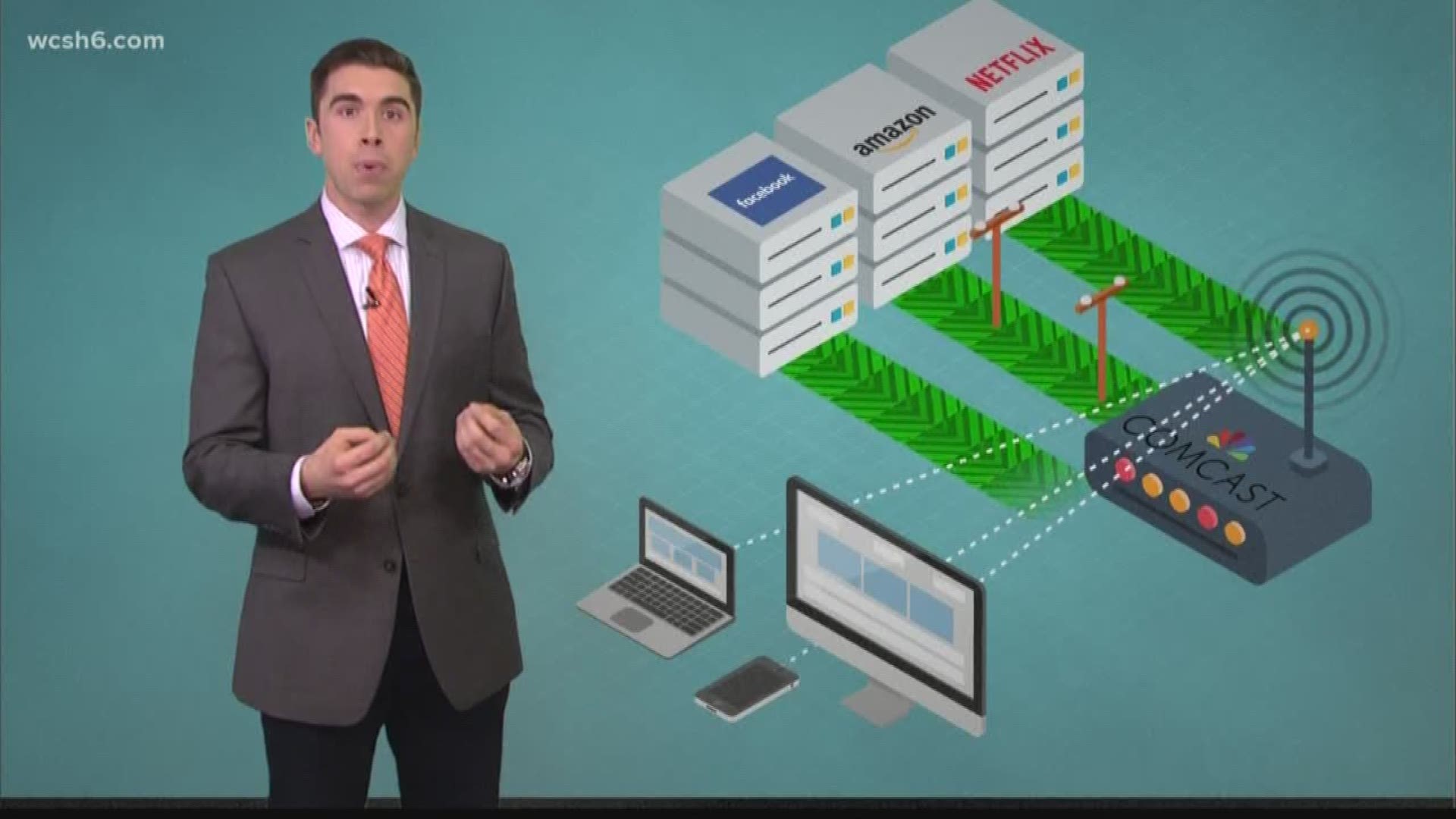PORTLAND, Maine (NEWS CENTER) -- The Federal Communications Commission is set to vote on new rules on December 14 that could affect how internet and cable users get their content.
The "Proposal to Restore Internet Freedom" would eliminate the classification of broadband as a public utility, as it was classified in 2015 during the Obama administration. It would allow internet service providers, or ISPs, to restrict how users get access to certain sites, depending on how the sites pay the ISP. It would also allow cable and satellite providers to do the same with the channels.
Net neutrality prevents service providers from charging companies to get priority access on the internet and television. The vote could erase that.
For example, if Amazon comes out with a new show, it could pay an ISP to for a better connection to help consumers handle all that data.
In the proposal, the FCC states, "requiring ISPs to divert resources to comply with unnecessary and broad new regulatory requirements threatens to take away from their ability to make investments that benefit consumers."
Opponents worry that this will allow the ISP to slow down or "throttle" other sites, like Netflix or Facebook, for example, because Amazon paid for better speed to reach its consumers. The ISP could potentially tell sites that use lots of data, like Facebook, to pay more money for a better connection. If Facebook and the ISP could not reach a deal, people who have that particular ISP, such as Comcast or Spectrum, could block the site entirely.
Comcast tweeted numerous times Tuesday, that it would not enter any paid prioritization arrangements, regardless of how the FCC rules turn out.
Hi Bree,
— Comcast (@comcast) November 28, 2017
This article reviews our longstanding support for the principles of net neutrality including links to the comments we shared with the FCC in 2010: https://t.co/meLglRGJ2F. Thanks! -Dan
Jarrod Maxfield, who works for Necessary Technology, said Tuesday that he's skeptical of that promise.
"Corporations are made of people and people come and go, and decisions get made and changed. If they say no now, that's a good thing," said Maxfield.
Maxfield said free competition and an open market is good, but that people's access to information should be treated like a public utility.
"Any limit on that, I think, could be detrimental," said Maxfield.
Maxfield said that it puts a price tag on the currently free and open internet.
"If you own a website, you might need to pay more than the next guy to get your content to someone faster. If you're a consumer, you may need to pay more to get a faster connection top the content that you want. It opens the door to corporations essentially picking and choosing the content that we have access to, and for me, that's a slippery slope," said Maxfield.
Maxfield thinks it could put start-ups and small businesses at a disadvantage. He said a consumer who is concerned about this should contact his or her local representatives.

